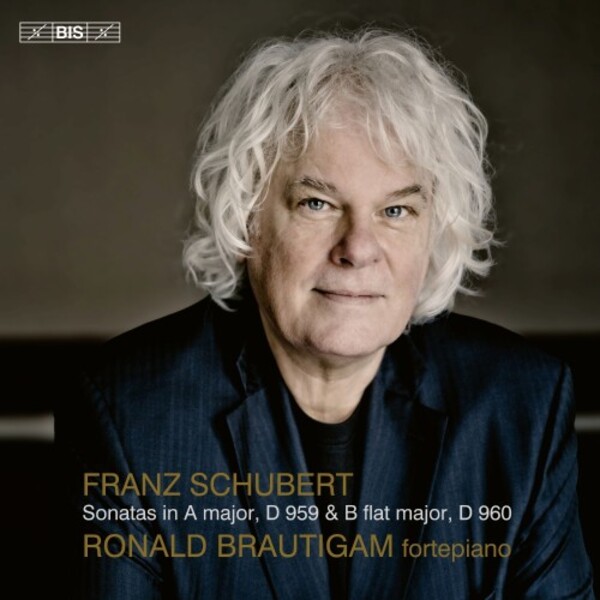SCHUBERT Piano Sonatas Nos 20 & 21 (Ronald Brautigam)
View record and artist detailsRecord and Artist Details
Genre:
Instrumental
Label: BIS
Magazine Review Date: AW2024
Media Format: Super Audio CD
Media Runtime: 82
Mastering:
DDD
Catalogue Number: BIS2624

Tracks:
| Composition | Artist Credit |
|---|---|
| Sonata for Piano No. 20 |
Franz Schubert, Composer
Ronald Brautigam, Fortepiano |
| Sonata for Piano No. 21 |
Franz Schubert, Composer
Ronald Brautigam, Fortepiano |
Author: Peter J Rabinowitz
Schubert’s final piano sonatas are strange works, full of odd phrase lengths, unexpected modulations, bewildering detours and juxtapositions of seemingly incompatible ideas. But over the years, especially in the hands of normalisers such as Alfred Brendel (Philips, 11/72), their quirks have been gently effaced, and – as John D Wilson suggests in his notes – they’ve settled into the repertoire as valedictory testaments of a man confronting death rather than as exploratory adventures by a composer still eagerly looking ahead.
Not so in these eventful readings by Ronald Brautigam. I don’t want to imply that he exaggerates the music’s unconventionalities: there’s nothing histrionic here, no added adrenalin in the manner of Horowitz’s controversial Carnegie Hall account of the B flat major (2/54). At the same time, though, there’s no sign of the other-worldly meditation we hear in Richter’s reading (HMV Melodiya, 12/74). Instead, with his imaginative articulation, his revelatory voicing, his subtle rubato, his superbly gauged dynamics (for instance, in the transition into the B section of the B flat major Sonata’s second movement) and his alert awareness of timbre (check out the growl of the left-hand trills towards the beginning of the first movement), he nudges Schubert’s originality into our consciousness. He keeps the music moving, too, not with excessive speed (although he avoids the sleepy tempos so prevalent today), but with an underlying momentum even in the calmer passages (say, the Trio of the A major Sonata’s third movement).
In all of this, he’s supported by the refreshingly unhomogenised sound of his instrument, a 2007 Paul McNulty copy of an 1819 Graf – a slightly spiky sonority that keeps far from the more uniform creaminess of, say, Claudio Arrau (Philips, 7/83). Listen, as but one example, to the way the colour (and tone of voice) changes in the unpredictable harmonic wanderings at the end of the first movement of the A major Sonata. The BIS recording team contribute, too, providing their usual sonic impact.
In her review of Brautigam’s first Schubert recording, featuring the eight Impromptus (12/23), Harriet Smith wrote: ‘What is consistently compelling about these performances is the way Brautigam and his instrument allow us to look under the bonnet of the music, and to wonder anew at Schubert’s genius.’ The same sense of wonderment marks this follow-up.
Discover the world's largest classical music catalogue with Presto Music.

Gramophone Digital Club
- Digital Edition
- Digital Archive
- Reviews Database
- Full website access
From £8.75 / month
Subscribe
Gramophone Full Club
- Print Edition
- Digital Edition
- Digital Archive
- Reviews Database
- Full website access
From £11.00 / month
Subscribe
If you are a library, university or other organisation that would be interested in an institutional subscription to Gramophone please click here for further information.




